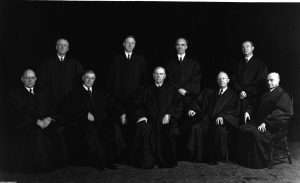Today, the term overt now signifies something done in a clear and transparent manner. However, in Middle English, it held more literal meanings of “open” or “uncovered”. This adjective was adopted from Middle French ouvert – still in use in Modern French to mean “open” – which originated from Old French uvert and Latin aperire, a verb meaning “open” that also gave rise to words like overture, aperture, and aperitif. Ultimately, this can be traced back to Proto-Italic hepo and the Proto-Indo-European root hwer, which meant “to cover” or “shut” (eventually transforming into its opposite due to a connotation of “uncover”). Descendants of this root include discover, curfew, garage, warrant, guarantee, and more. According to Google NGrams, the usage of the term overt reached its peak in 1974 and has since been steadily declining.






